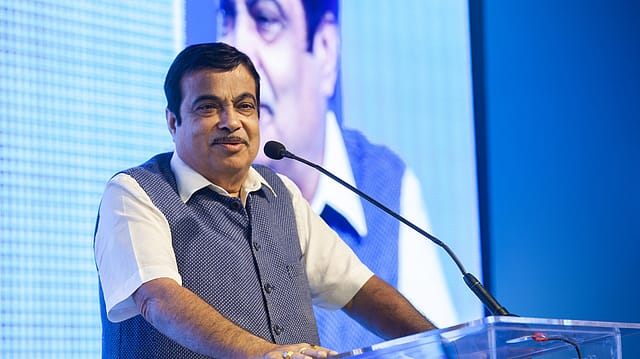Six airbags for cars not mandatory now: Nitin Gadkari
ADVERTISEMENT

Union Minister Nitin Gadkari on Wednesday said that the government's proposal of introducing six airbags in vehicles is not mandatory for automobile manufacturers. Gadkari was speaking at the sidelines of the 63rd ACMA (Automotive Component Manufacturers Association of India) annual convention. The government had earlier set the deadline of October 1, 2023, for the implementation of the airbags mandate.
"Bharat NCAP has already started. The automobile manufacturers who have already started making six airbags will get more market share. Most of the automakers have already accepted the mandate. Only one company has some reservations, so it’s up to them if they want to accept the mandate or not. But now people are conscious. And whatever the economic model is people prefer to take six-air bags car," Gadkari says.
"We don't need to make it mandatory," he adds.
According to Gadkari, it is up to automakers if they want to make six-airbags and increase their market share.
Notably, the government introduced the six-air bags mandate last year to enhance safety for vehicle occupants. According to the ministry of road transport and highways, vehicles of category M1, manufactured after October 1, 2022, "shall be fitted with two side/side torso airbags, one each for the persons occupying front row outboard seating positions and two side curtain/tube airbags, one each for the persons occupying outboard seating positions."
Meanwhile, Gadkari says that the domestic automobile industry grew from ₹5.60 lakh crore in 2014 to ₹12.50 lakh crore till now. However, he points out that the imports pose a major challenge to the domestic automobile industry. According to Gadkari, imports of fossil fuel have been constantly increasing on a daily basis.
"There is only one challenge that India has imports worth ₹1.63 lakh crore and we need to reduce these imports, use the best technology and manufacture products of international standards," he says.
"Our export is ₹1.61 lakh crore. The contribution is 2.1% and the manufacturing contribution to Indian GDP is 25%. Employment generation is 50 lakh across the automobile industry," he adds.
Notably laying emphasis on the circulation economy, Gadkari says that the basic problem is the domestic imports for fossil fuels are ₹60 lakh crore. "The way this industry is growing, I feel that the imports can grow up to ₹25 lakh crore in the next five years. This is going to be a major challenge. Another problem is pollution because of fossil fuel emissions," he adds.
Urging automakers to go electric, he says that this transition will aid in reducing the cost. "There are four things I recommend- the proven technology, economic viability, availability of raw materials, and marketing of the finished product," says Gadkari, adding that it is time for the domestic automobile industry to adopt alternate fuel technologies.
Laying emphasis on the survival of the fittest in the domestic automobile industry, he says, “Hydrogen is the fuel for the future...By developing that technology, everyone is getting the market and making profits and making investments. And it has been experienced in the whole world. Brazil is making the technology of ethanol, electric vehicles are successful technology in the US and across European countries, so whatever successful technology is available in the world, it is time for BHARAT to accept those technologies."